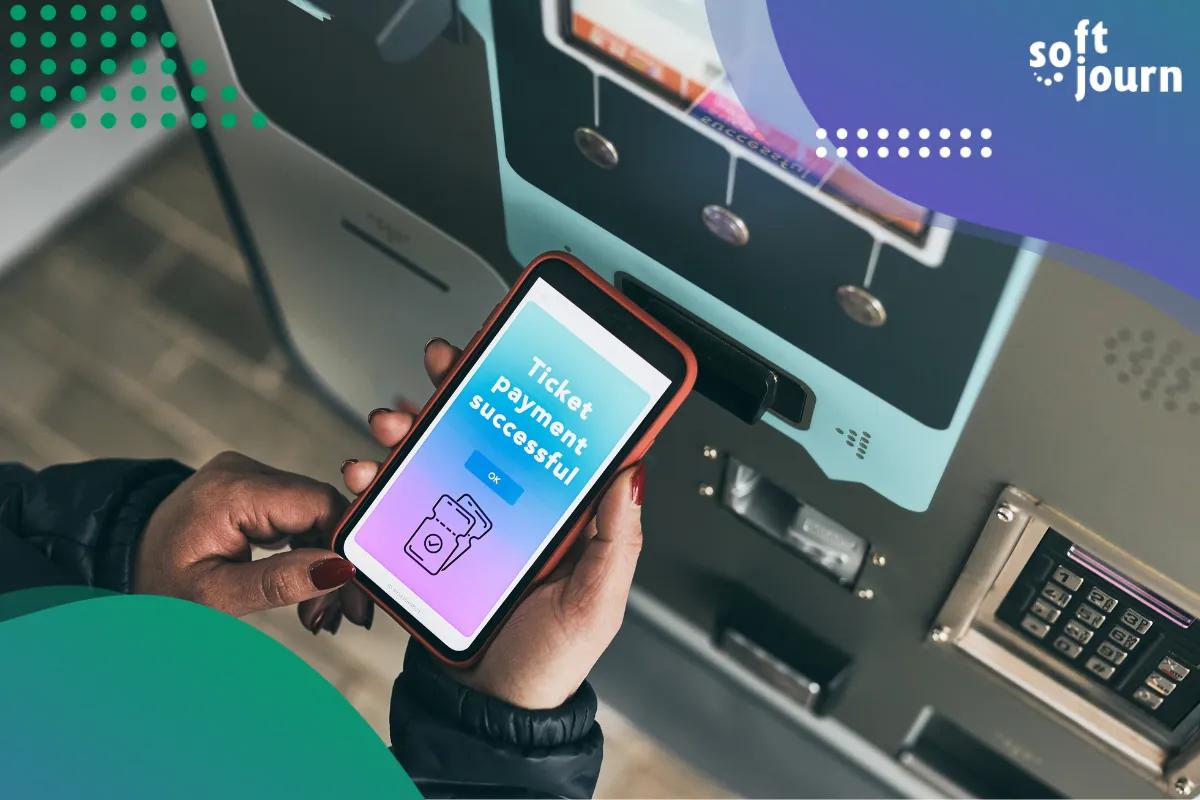Artificial intelligence has advanced in leaps and bounds across industries over the past few years, from ChatGPT's conversational capabilities to AI-powered art and music that have captivated millions. With AI technology advancing at breakneck speeds, its impact on the ticketing and events industry is becoming increasingly tangible.

In 2026, AI has moved from experimental to operational. While some applications remain overhyped, others are delivering measurable value in ways the industry didn't anticipate. Sébastien Braun, CEO at idloom, captures this duality: AI is "both overhyped in vision and underhyped in practical impact."
The real AI revolution in ticketing isn't about replacing human decision-making or creating futuristic fan experiences. It's about removing tedious manual work, accelerating processes that once took hours, and catching problems before they escalate into crises.
Here are six ways AI is transforming the ticketing industry in 2026:
1. Chatbots and Event Discovery
The conventional chatbot has been commonplace for years, popping up on websites across the internet. Yet many have fallen short of expectations, sometimes leading to frustrating customer experiences.
Even so, 74% of customers prefer chatbots for simple questions, and they've proven valuable to businesses by saving an estimated 2.5 billion working hours per year and $11 billion. The global chatbot market is expected to reach nearly $28 billion by 2030.
Today's chatbots must evolve to supply the value expected of them, and with the help of AI, they are. Recent advances in natural language processing (NLP) mean chatbots can now help with customer support, assist those with disabilities to complete ticket purchases, or be integrated into physical ticket-selling kiosks. They can be combined with voice authentication for better security and customer service.
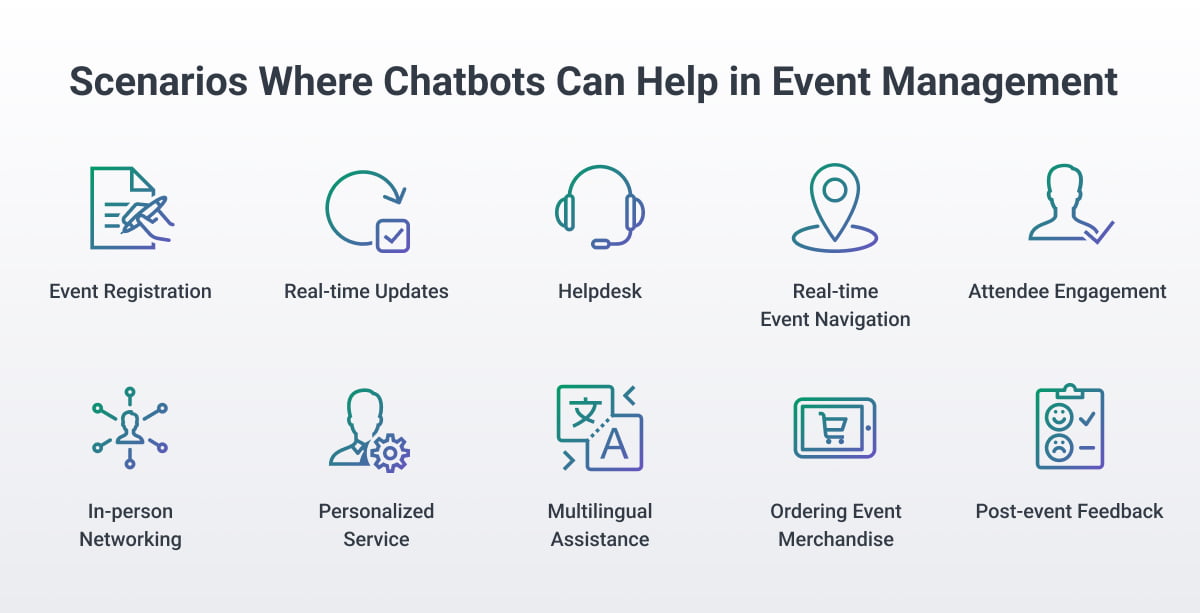
The Next Evolution: AI-Powered Discovery
Aaron Parris, EVP and Co-Lead of Partner Success at FEVO, sees conversational AI as a significant shift in how customers find tickets. "The shift in how customers find tickets via conversational AI like ChatGPT and Gemini is real, and that's the first place AI moves the needle, forcing us to rethink how offerings are marketed and ensure transactions are frictionless," he notes.
Jason Chan, Co-founder of Cinewav, believes AI will fundamentally change how people search and book tickets. "I think AI is going to be a huge disruptor. If AI is able to search for tickets in your ticketing database and easily book, that will be a huge disruptor. I think MCP servers will be a big way in which AI, and therefore, people will be able to search and book from multiple sources eventually. This may allow venues to handle ticketing themselves without fully relying on third parties."
Use Case: AI-Powered Event Discovery Chatbot
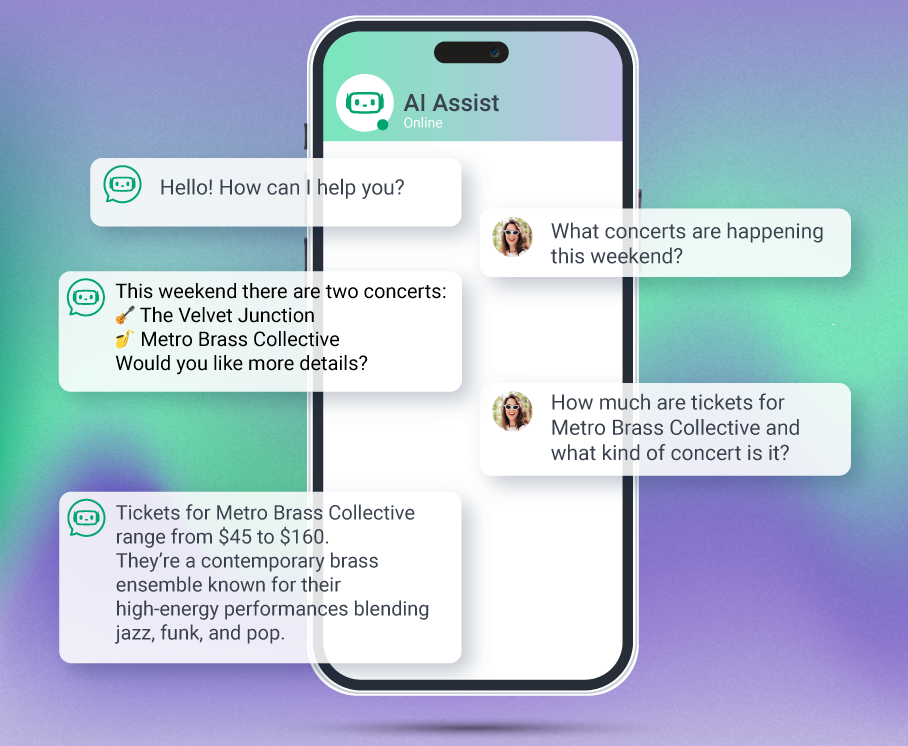
AI-Powered Event Discovery Chatbot by Softjourn
At Softjourn, we've developed our own AI-powered event discovery chatbot as proof of this concept. Designed by our internal R&D team, this intelligent assistant helps fans quickly find relevant events using natural language queries like "family-friendly concerts this weekend" or "live events under $50 near me."
It integrates seamlessly with existing ticketing platforms, offering real-time recommendations while also helping vendors promote underperforming events, upsell VIP experiences, and gain valuable insights from customer search behavior.
We're already exploring how this ready-made solution can be tailored to ticketing platforms looking to personalize discovery and drive revenue. Interested in seeing it in action? Get in touch with our team to learn more.
While chatbots have become more sophisticated, their real value in 2026 comes from integration with booking systems rather than operating as standalone tools. When AI discovery is tightly coupled with transaction flows, conversion rates improve significantly compared to chatbots that simply answer questions without enabling immediate action.
2. Dynamic Pricing
Dynamic pricing, powered by artificial intelligence, continues to reshape ticketing strategies by enabling real-time price adjustments based on factors such as demand, presales, and search trends.
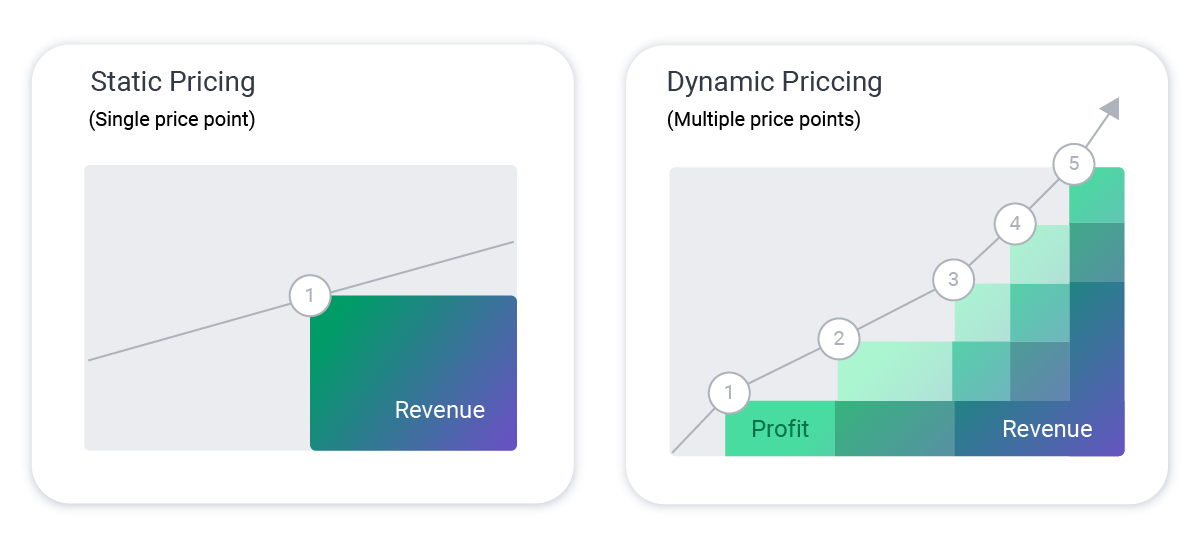
This approach, comparable to how airlines or hotels price their offerings, can maximize profitability for venues while providing opportunities for fans to save when demand is lower.
Ticketmaster has leveraged AI since 2016, starting with its "Verified Fan" feature, which combats bots and prioritizes genuine buyers. Its more recent AI-powered tools, such as "Platinum Tickets," dynamically adjust prices based on market demand.
While these tools have driven higher revenue and filled venues more effectively, they've also sparked consumer frustration over price spikes for high-demand events. In September 2024, the European Commission launched an investigation into Ticketmaster's dynamic pricing practices, underscoring concerns about fairness and transparency.

Despite the controversy, AI-powered pricing offers significant benefits, including the ability to sell out events efficiently and maximize revenue. Alex Grant, Co-Founder at Travel Curious Group, sees AI-driven demand forecasting enabling automated pricing changes as a near-universal capability by the end of 2026. "The most obvious place for AI to help is forecasting demand and allowing automated pricing changes," Grant notes.
However, challenges remain, such as ensuring predictive accuracy and mitigating customer dissatisfaction due to fluctuating prices. As these systems evolve, they continue to balance advantages and drawbacks while reshaping the ticketing landscape.
For better or worse, machines will continue to quickly identify patterns and inform pricing decisions for ticketing.
| Advantages and Disadvantages of Dynamic Pricing Using AI | |
| Pros | Cons |
|
|
|
|
|
|
3. Upselling & Cross-Selling
AI can help utilize your past events and consumer data to enhance your future events. Many large-scale companies use artificial intelligence to power their ticketing platforms by tracking the kind of attendees they have to upsell and cross-sell.
Artificial intelligence can be used to analyze data sets for concerts, sporting events, and theater tickets, such as:
- Face value ticket prices vs resale prices
- How fast tickets have sold
- Historical concert attendance stats
- How well tickets historically sell at a given venue
- How well tickets historically sell in a given city
Event organizers and ticket vendors can build nuanced customer profiles by combining information such as historical data of past event attendance, responses to post-event surveys, or even information as simple as providing an email to a website but not making a purchase, and match those profiles with future events and other offers.
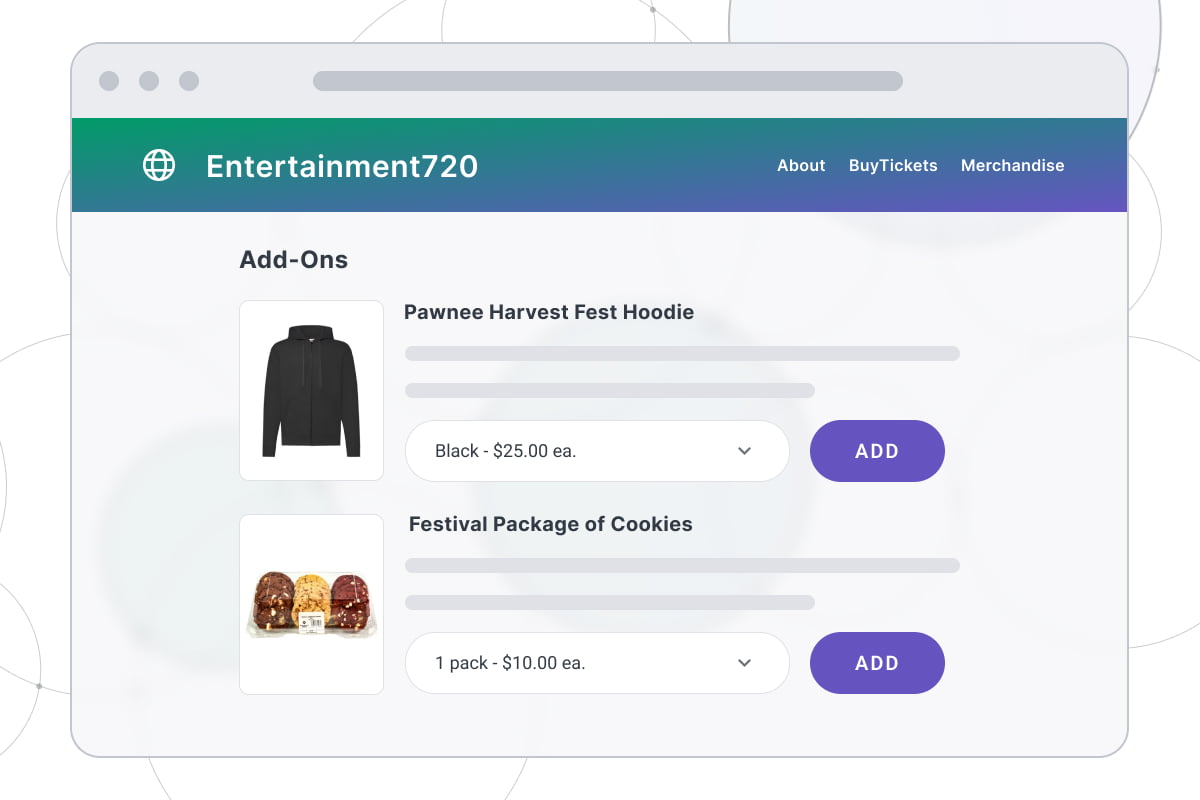
With customer data, organizations can pair traditional cross-sell models with artificial intelligence to understand future customer behavior and choose channels in which to engage them. More than half of customers are willing to share their information to create a more personalized experience.
Investing in personalization to build customer relationships and create a better experience can pay off well. Personalization can persuade an existing customer base to spend more on related goods and services through cross-sale and up-sale recommendations. Approximately 9 out of 10 consumers are more likely to shop with brands that supply offers and recommendations that are relevant to them, and 7 out of 10 consumers expect personalized and consistent customer experiences across multiple channels.
Aaron Parris, EVP and Co-Lead of Partner Success at FEVO, sees this as one of ticketing's biggest opportunities in 2026. "The rest of the e-commerce world figured this out before the ticketing industry has, but we're faced with the opportunity to better represent and present added value opportunities to extract more revenue. Integrating things like merchandise or unique in-venue experiences right into the initial purchase flow is what moves ticketing from a simple commodity transaction to a true retail experience."

Besides tickets, artificial intelligence solutions can help with selling concessions and merchandise by selecting products relevant to the tickets in the purchaser's online cart, encouraging impulse buying.
Bold Upsell, PogoSeat, SimpleTix, and Algolia Recommend are examples of AI-powered solutions that can help platforms seamlessly upsell merchandise, discounts on future purchases, season passes, or memberships. SimpleTix estimates that upsells can increase a business's revenue by 10-30%.
4. Predictive Analytics
Selling a ticket does not end with the purchase. Artificial intelligence can help event organizers better understand where their patrons are in the patron journey, even helping to predict and mitigate no-show trends down to the seat.
Use Case: Seatcycle
Seatcycle is a real-world example of this AI use case. With historical data and trends, artificial intelligence systems can predict the who, where, and when that might affect how full a venue may look for different performances. This technology, along with orphan-seat prevention algorithms, can help improve venue mapping and ensure that entertainers and event managers are confident a venue will be beneficial for them.
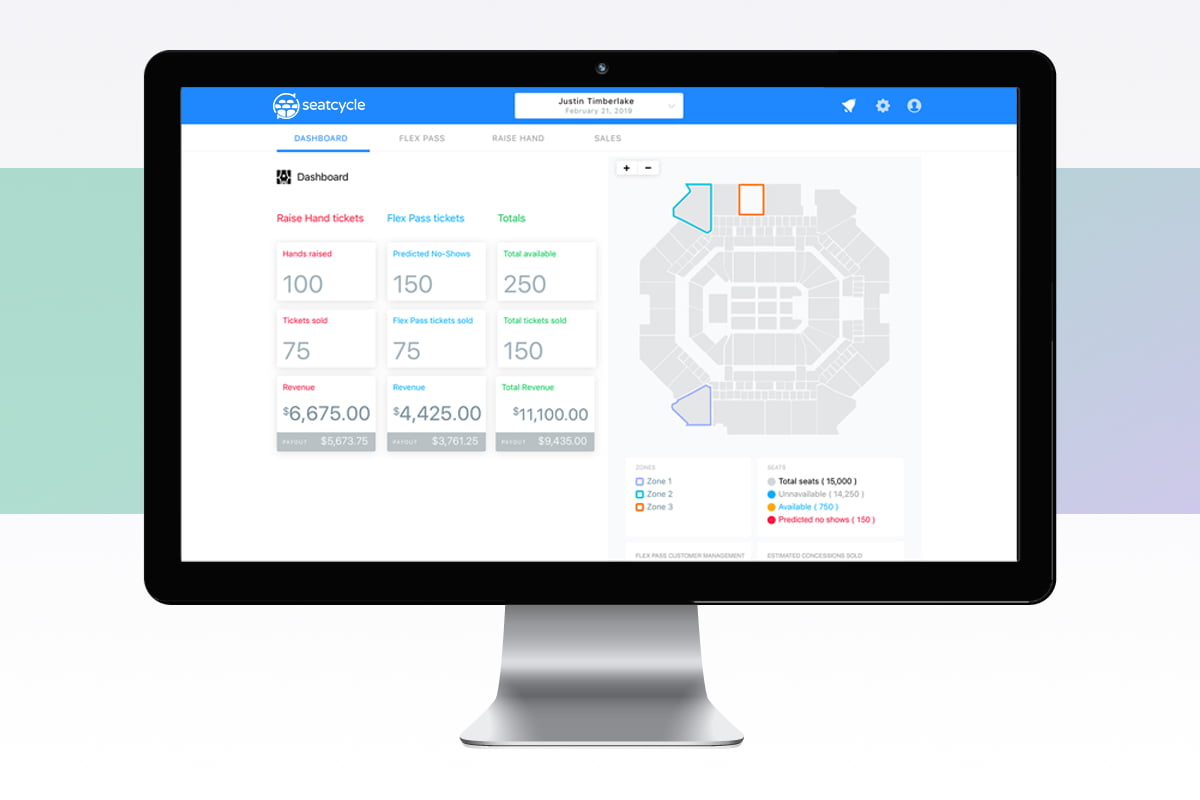
In an interview with INTIX, Mike Lorenc, the former head of Google's ticketing, said:
"ML is showing great promise in predicting demand for certain shows/artists in different markets. The ability to analyze in real-time inputs such as video views on YouTube, search trends on Google, streams, and social media activity, along with past purchase history, has the potential to impact not only optimal venue capacity but also pricing models for yet-to-be announced shows."
Operational Applications
Jessica Stewart, who manages ticketing for The Event Planner Expo, has seen predictive analytics transform operations.
"What's genuinely changing operations behind the scenes is predictive analytics for capacity planning. AI tools now forecast which breakout sessions will hit capacity based on speaker popularity and topic trends from LinkedIn activity. This lets us reassign rooms three weeks out instead of dealing with overflow chaos on event day. We've cut our day-of logistics scrambling by at least 40 percent just from better predictions."
Eric Tobias, founder and CEO of Opendate, frames the value practically for smaller operations.
"I think it's less about the technology itself and more about what it can do for venues that are often under-resourced. Margins are thin, and teams are small. If AI can actually accomplish real work for owners and operators, it will move the needle in a significant way. These owners and operators don't care about the technology. They care about building a sustainable business, and AI can help them do that."
AI can also forecast how patrons may arrive at the venue, both by arrival over time and through different entrances, to help adjust queue processing. This information can also help with procurement planning for stocking categories such as merchandise, food, and beverages.
Combining this with technology like geofencing can provide another layer of direction, future event advertisement, boost fan engagement, and invite patron feedback to understand and address potential pain points.
Analytics to Better Know Fans
Predictive analytics extends beyond operational improvements to reveal what audiences genuinely expect from their live event experiences.
According to Deloitte's Sports Fans Insights, 58% of sports fans want the same level of stats, analysis, and replays available at live events that they enjoy while watching at home. Among Gen Z and millennial fans, that expectation jumps to nearly 70%.
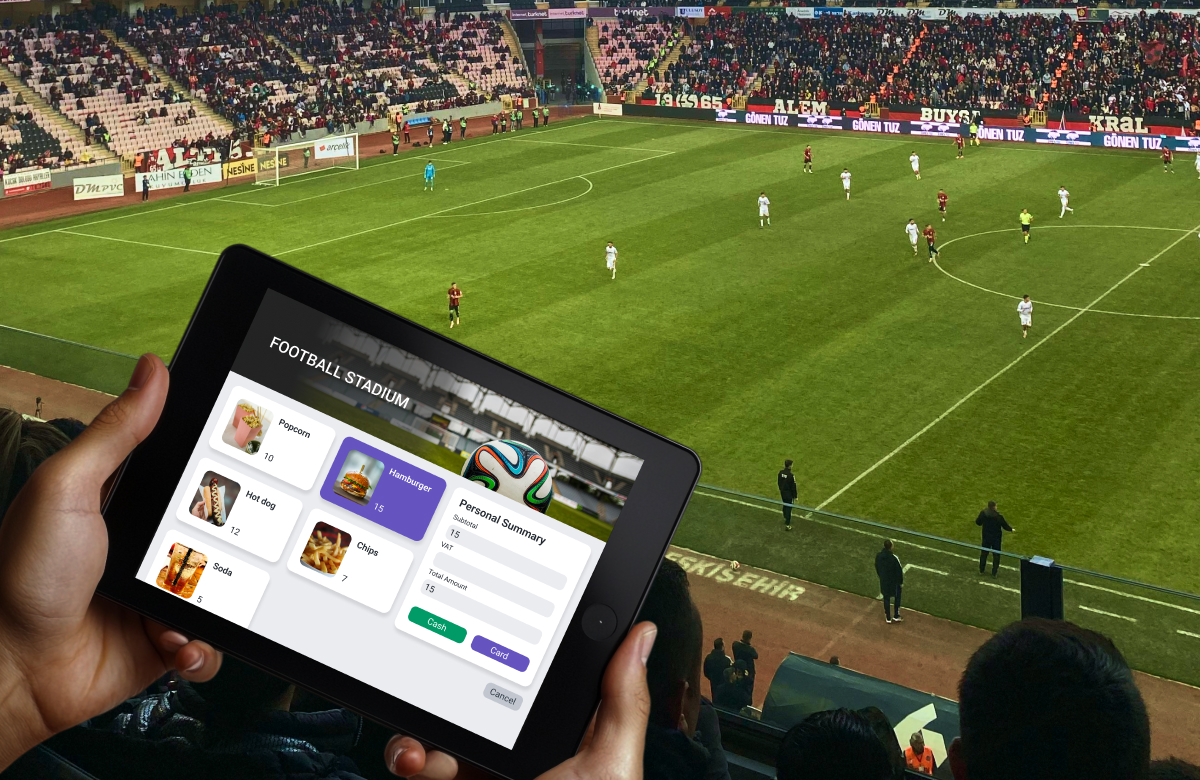
Use Case: The Golden State Warriors
The Golden State Warriors have set the standard for AI-driven fan engagement by leveraging over 30 fan-facing data sources and more than 100 million data points through their custom-built mobile app. In partnership with Google Cloud, the Warriors use this data to tailor each fan's digital experience from favorite players to preferred food vendors at the Chase Center.
Daniel Brusilovsky, VP of Technology for the Warriors, said:
"If you're coming to the game, and we know that you really like a specific food item at a specific eatery, and you have a favorite player, we can create a digital experience tailored just for you and no one else. We know we're competing against a lot of incredible entertainment options, so it's invaluable to us to give our fans a second-to-none experience with our brand."
The Warriors are also implementing Vertex AI to power natural language search capabilities that allow fans to ask questions about bag policies, attendance requirements, and venue information in real-time through their app and website.
This AI-driven support reduces friction in the customer journey by providing instant, accurate answers without requiring fans to navigate through documentation or wait for customer service responses.
5. Operational AI & Back-Office Automation
While consumer-facing AI applications like chatbots and dynamic pricing generate headlines, some of the most impactful AI implementations in 2026 are happening behind the scenes. Back-office automation is quietly transforming how ticketing platforms operate, reducing manual workload and allowing teams to focus on strategic initiatives rather than repetitive tasks.
Kayhan Ahmadi, CEO of Ticketbud, predicts widespread but largely invisible AI adoption.
"AI is going to be like electricity at the turn of the century. It is going to be part of every business as part of their process. I don't think we are going to see tons of consumer-facing AI products at the moment, but we will see more and more AI products to help event organizers pull reports, organize data, and speed reconciliation. The tedious tasks associated with events can be automated and streamlined with AI."
The operational impact of AI is measurable across the broader sports industry. According to Stats Perform's 2026 survey of sports organizations, 69% report significant time savings from AI integration, while 46% have realized cost savings, and 37% are producing higher content volumes. These benefits mirror what ticketing platforms are experiencing as they deploy AI for customer support, data reconciliation, and operational forecasting.
Customer Support Automation
One of the most immediate impacts is on customer support. Ruben Meiland, Chief Product and Technology Officer at TicketSwap, points to AI-powered support that can resolve 60 to 80 percent of cases instantly. "Refund questions, transfer issues, buyer and seller disputes get handled automatically, freeing teams to focus on the complex edge cases," he explains.
This shift allows human staff to concentrate on situations requiring judgment and empathy rather than routine inquiries about order status, ticket transfers, or basic event information.
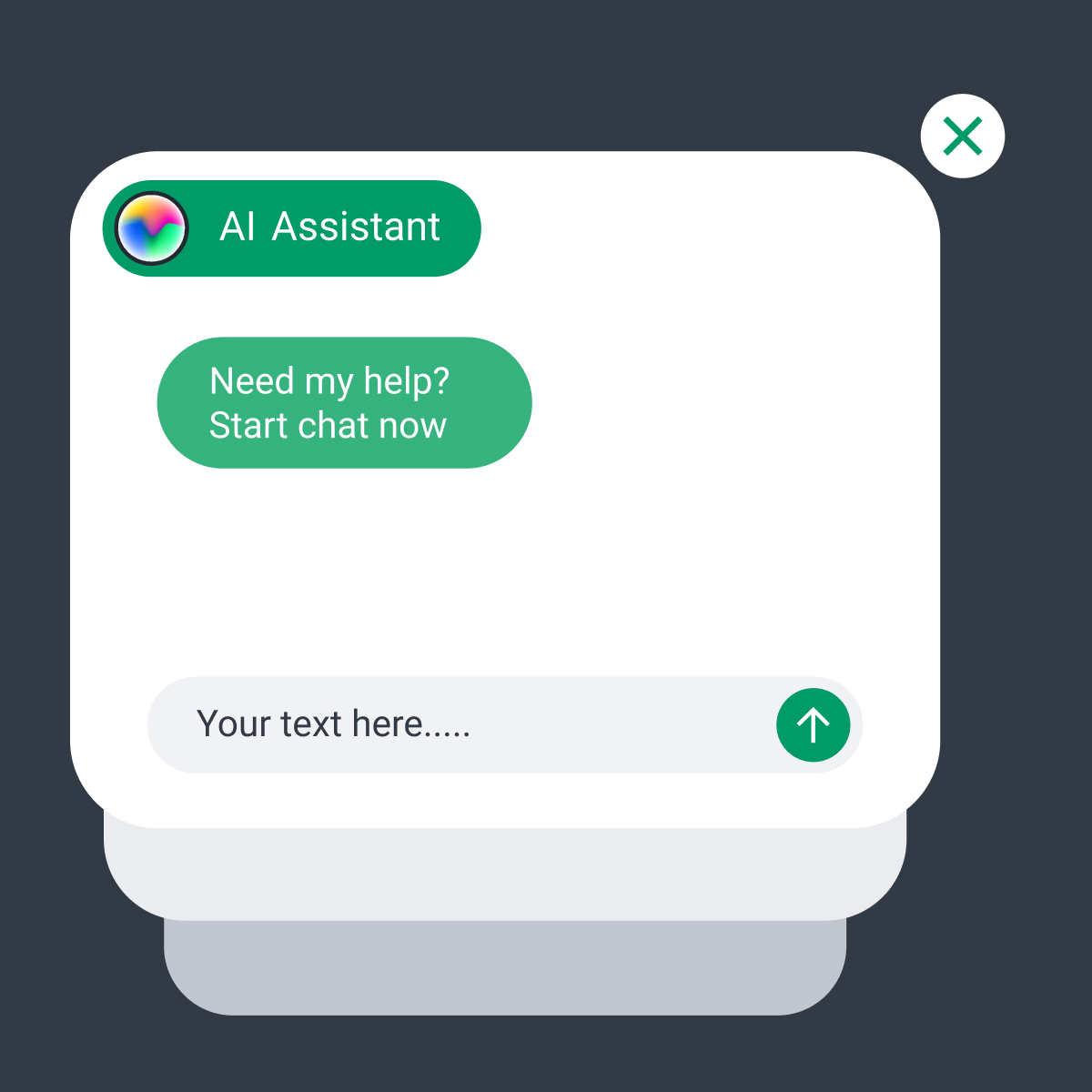
Fraud Detection and Risk Management
AI systems now analyze transaction patterns in real time, detecting anomalies before scams escalate. Sam Mogil, founder of SquadUp, notes that real AI impact sits in "automated customer support, dispute preparation, fraud triage, refund-reason classification, operational forecasting, and reconciliation cleanup."
For platforms handling thousands of transactions, these operational efficiencies translate directly to reduced support costs and faster resolution times.
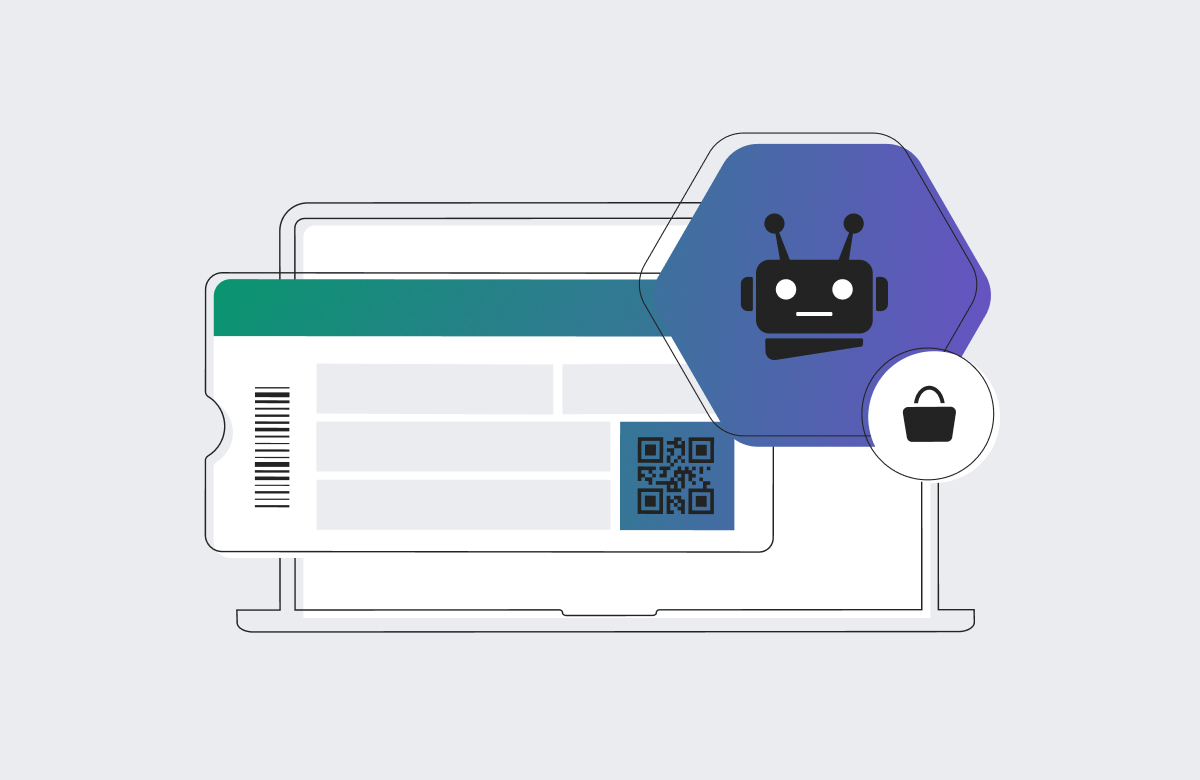
Data Processing and Reporting
Event organizers spend significant time pulling reports, reconciling payments, and organizing data across multiple systems. AI can automate much of this work, generating reports on demand, identifying discrepancies in financial data, and surfacing insights that would take hours to compile manually.
These operational improvements may not be glamorous, but they directly affect platform profitability and customer satisfaction. Platforms that successfully implement back-office AI free up resources for innovation and strategic growth rather than maintenance and firefighting.
6. Access Control
The access control market is experiencing explosive growth, driven largely by AI innovation. Valued at USD 3.80 billion in 2025, the market is projected to reach USD 5.61 billion by 2030, registering an 8.10% CAGR. This expansion reflects how cloud management, mobile credentials, and AI-powered biometric authentication are replacing legacy systems across venues worldwide.
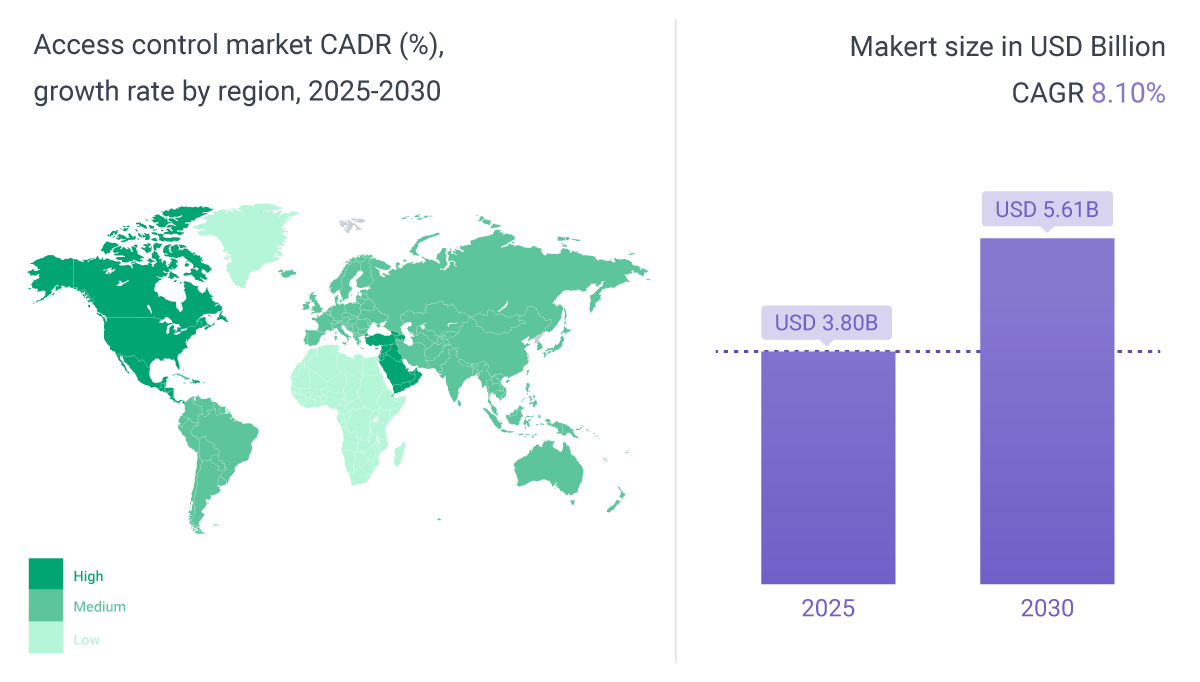
Access control has been rapidly improving through multiple digital methods, evolving from scanning paper tickets to using a patron's phone to today's contactless ticketing options. Now, AI-powered facial recognition is emerging as the next evolution in ticket verification.
AI-Powered Facial Recognition
Facial recognition technology leverages AI algorithms to identify and verify attendees by analyzing facial features and patterns. Machine learning models are trained on vast datasets to recognize faces with high accuracy, even in challenging conditions like varying lighting, angles, or partial obstructions.
ASM Global, one of the largest entertainment producers in the world, introduced facial verification entry at some of its major venues in partnership with technology provider PopID. The rollout utilizes advanced AI-powered facial recognition technology at venues, stadiums, and theaters around the world.
ASM Global CEO and President Ron Bension said, "PopID's dynamic technology and solutions will allow us to even further revolutionize the event experiences of the future, ensuring that every guest interaction is secure, speedy, and seamless."

How AI Enhances Access Control
AI improves traditional access control in several ways:
- Speed and Accuracy: AI systems can process facial scans in milliseconds, identifying ticket holders faster than manual checks or even barcode scanning.
- Fraud Prevention: AI algorithms can detect spoofing attempts, such as photos or masks, ensuring only legitimate attendees gain entry.
- Seamless Experience: Once enrolled, attendees can enter venues without stopping to present tickets or phones, creating truly frictionless entry.
- Real-Time Analytics: AI can provide venue operators with real-time data on entry patterns, crowd flow, and capacity management.
Most likely, VIP ticket holders will be granted more personalized event experiences while the technology is in its early stages. Eventually, modern AI-powered facial recognition solutions may allow for faster queue processing across all ticket types.
Challenges and Considerations
However, there are drawbacks to AI-powered facial recognition, including:
- More steps in the ticket purchase process to capture the customer's face and its patterns
- Customers may be unwilling to opt-in to facial recognition due to privacy concerns
- Additional hardware and/or software may be required during the check-in process
- Regulatory concerns around biometric data storage and usage, particularly with GDPR and other privacy laws
- AI bias concerns, as facial recognition systems have historically shown accuracy disparities across different demographics
Ticketing organizations should consider whether the value of using this technology for access control outweighs the obstacles involved in making customers feel safe using their biometric information.
As AI continues to improve accuracy and as regulatory frameworks evolve, adoption may increase, but transparency and user consent remain critical.

What Does the Future of AI in Ticketing Look Like?
The next one to two years will likely see AI tools in ticketing evolve toward greater personalization and automation. Predictive algorithms may advance to offer not just demand-based pricing but also customized promotions for individual consumers, leveraging data from real-time social media trends and browsing histories.
However, not all AI promises will materialize as quickly as anticipated. Sébastien Braun, CEO at idloom, identifies where he believes AI won't move the needle: "With replacing organizers or fully automating event setup, there's too much nuance. Predicting perfect demand curves also remains difficult because there are too many externalities."
The human element in event planning, relationship management, and handling complex scenarios remains irreplaceable. AI will augment these capabilities rather than replace them.
Infrastructure Challenges
Josh Katz, founder of YellowHeart, sees technology infrastructure as a potential bottleneck.
"Historically, the live entertainment business has been very slow to move towards the use of new technologies. Eventually, I'm sure they will start using AI, although I believe that many of the incumbent tech stacks might not be able to do much integration because of how outdated and old they are."
This suggests that while AI capabilities advance rapidly, adoption in ticketing may be limited by legacy systems that can't easily integrate new technologies. Platforms that have invested in modern, flexible architectures will be better positioned to leverage AI innovations than those still running on outdated infrastructure.

Where Real Impact Will Come
The most significant AI impact in the next two years will likely come from:
- Operational automation that reduces manual workload without requiring customer-facing changes
- Better fraud detection that works invisibly to protect both platforms and buyers
- Smarter capacity planning that helps organizers make data-driven decisions about venues and pricing
- Personalized discovery that helps fans find relevant events without overwhelming them with options
Hrefna Sif Jonsdottir, Managing Director at Tixly, believes AI is still underhyped in the areas that actually matter.
"It's not about the flashy features everyone talks about; it's about the daily work. If we can use AI to help venues save time and simplify their workflows, that's where the real value is. We're exploring this carefully at Tixly because it helps small teams do more with less."
Final Word
The AI applications covered here represent the most impactful implementations in 2026, but this is just the beginning. The platforms that succeed with AI won't be those implementing every new technology, but those strategically adopting innovations that solve real operational problems.
With AI transforming ticketing operations, Softjourn brings over 20 years of ticketing expertise to develop custom solutions that leverage AI to optimize pricing, enhance customer engagement, and streamline operations. Contact us today to take your ticketing experience to the next level.









